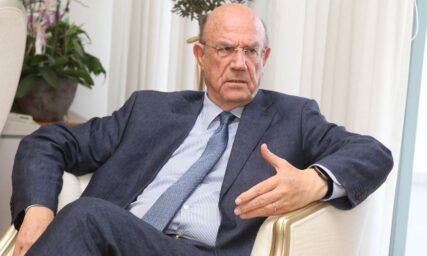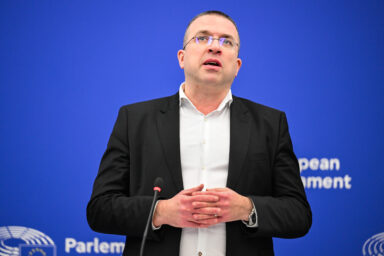The fallout over the European Commission’s Multiannual Financial Framework, unveiled on 16 July, continued into Thursday morning during an extraordinary meeting of the Committee on Regional Development.
MEPs raised questions and debated key issues following a presentation by Raffaele Fitto, the Executive Vice-President of the European Commission responsible for cohesion and reforms. Many expressed dissatisfaction with the direction of the next budget. Mr Fitto defended the plans and sought to allay fears over the future of the cohesion programme, saying as a “key pillar in the next budget” it would “remain one of the fundamental values of the EU” – central, he said, to newly devised national and regional partnership plans.
He acknowledged that despite his explanations, the proposal would be difficult for some to accept. “That is why I wanted to attend this meeting as quickly as possible,” he said.
Uncertain path ahead
No one expects the process to be simple or over quickly. On the contrary, this is the first step in a two-year process. With media coverage already highlighting many expected losers in the next budget — and the requirement for unanimous agreement from member states as well as approval from Parliament — many foresee the negotiations as a “bitter grind” that even Commission President Ursula von der Leyen may have underestimated.
“Visiting the European Parliament today is like visiting the US after Pearl Harbour.” – MEP Andrey Novakov
The Committee on Regional Development meeting was one of the first to follow Wednesday’s messy and widely criticised rollout. Many of Thursday’s questions echoed those raised the day before, underscoring just how hard some stakeholders will be to convince.
After a 10-minute introduction by the vice-president, political group coordinators spoke. The first was Andrey Novakov (EPP/BUL), who expressed support for Mr Fitto’s efforts despite the proposal result.
You might be interested
A day that will live on…
“Visiting the European Parliament today is like visiting the US after Pearl Harbour,” Mr Novakov said. “At least, that is the feeling here.” He said he had never seen a weaker MFF proposal in his three terms. The MEP struggled to identify where to begin with his objections, eventually focusing on what he saw as a significant drop in cohesion funding and the difficulty of explaining that to citizens at home. And Mr Novakov concluded by asking Mr Fitto to act as an ally and help recover funds lost in the new budget.
Marcos Ros Sempere (S&D/SPA) took a different approach, accusing the Commission of sidelining Parliament in both budgetary control and legislative development. He argued that the proposal placed far too much under Commission discretion while introducing new priorities with reduced resources. “As we said yesterday, you can’t do more with less.” Calling the process “chaos,” he added, “Nobody knows how this budget will be managed.”
These interventions were among the most pointed of the session.
Defending the numbers
After the session, Mr Fitto addressed several specific points. He spoke at length about the structure of cohesion policy and the mechanisms underpinning it. Acknowledging the frustration in the room, he said the mood felt “like a wake,” but insisted the fundamentals were sound: “Nobody has died.” He urged MEPs to look at the legislative text and the details of national and regional partnership plans.
Turning to numbers, he explained that €771bn had already been pre-allocated, with €300bn in direct payments and €87bn specifically for regional development. He acknowledged that he and many MEPs may be engaged in “parallel discourses,” but maintained that closer scrutiny of the documents would reveal how the figures aligned with policy goals.
Whether Mr Fitto was putting on a brave face or simply buying time is open to interpretation. What is clear, however, is that the figures are now on the table — and either they will hold, or they will not.
Final impressions
By Thursday afternoon, media outlets were writing follow ups on who had won and who had lost. Anger over the budget’s scope, structure and communication was visible across party lines, with some warning that the proposal did not go far enough, while others viewed it as overreaching in light of national financial constraints — particularly in countries like France.
In effect, the Commission fired the first shot with its ambitious budget draft. Many MEPs did not like the way it was introduced, nor the shifts in funding priorities. While there may be many ways to revise or reshape a financial framework, this time the Commission’s prepared poorly and, many charged, at the last minute. It should have gone differently. This time the message largely missed the mark.











